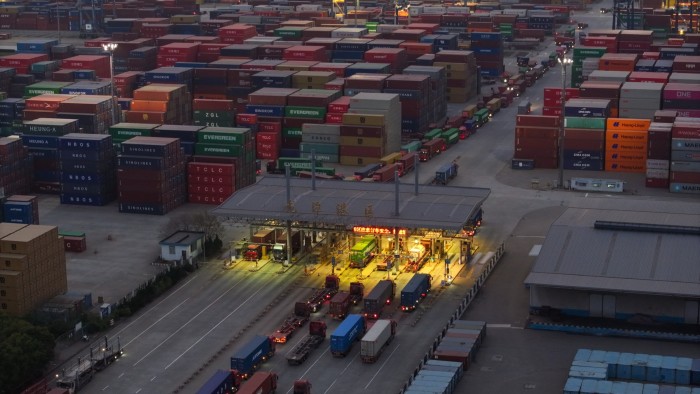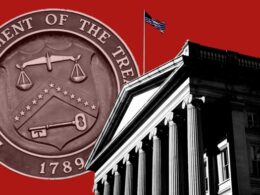Unlock the Editor’s Digest for free
Roula Khalaf, Editor of the FT, selects her favourite stories in this weekly newsletter.
Donald Trump’s sweeping tariffs are dominating headlines and triggering a trade war — but international trade policy, its theoretical underpinnings and its impact on ordinary people have long been the subject of debate. Here are five books that offer a range of perspectives and proposals from the past 20 years.
Why Politicians Lie About Trade . . . And What You Need to Know About It by Dmitry Grozoubinksi (2024, Canbury)
Billed as a layperson’s guide to international trade, Grozoubinksi’s book wears its serious mission lightly. In an entertaining read, the Australian former government trade official illustrates how global trade policy affects the lives of ordinary citizens — and aims to play his part in equipping non-specialists with the knowledge they need to scrutinise the arguments of lobbyists and lawmakers more rigorously. After all, as he writes ominously: “While you may have chosen to take little interest in trade policy, trade policy is increasingly taking an interest in you.”
Trade Wars Are Class Wars by Matthew C Klein and Michael Pettis (2020, Yale University Press)
The authors, an economics commentator at Barron’s and a professor of finance at Peking University’s Guanghua School of Management, analyse the history of the US, China and Germany over the past three decades to build their argument that upheaval in global trade policy can only be understood in the context of domestic pathologies in leading economies. They illustrate, as Martin Wolf wrote in his review in 2020, that “the overall balance in goods and services is explained by savings, investment and capital flows, not by bilateral trade balances, as Donald Trump imagines”.
Misadventures of the Most Favored Nations: Clashing Egos, Inflated Ambitions, and the Great Shambles of the World Trade System by Paul Blustein (2009, Public Affairs)
Blustein’s forensic account of the Doha round of multilateral trade talks — which the FT’s editorial board went on to describe as “one of the longest-running farces in global policymaking” — might have been even more damning had he written it six years later, when the WTO finally declared it dead. The veteran economics journalist paints a picture of repeated setbacks and disappointments, sketching a colourful cast of characters along the way. One particularly notable theme, Alan Beattie highlighted in his review, is that “the WTO is a terrible body for conducting negotiations”.

Kicking Away the Ladder: Development Strategy in Historical Perspective by Ha-Joon Chang (2002, Anthem Press)
Chang studies the historical pressures applied on developing countries “to adopt a set of ‘good policies’ and ‘good institutions’ to foster their economic development”, largely driven by what had worked over the centuries for the biggest Anglo-American powers. In his analysis, he breaks down the debate around whether the same “theoretically-based propositions (eg, free trade benefits all countries)” are appropriate for modern growing economies.
No Trade Is Free: Changing Course, Taking on China, and Helping America’s Workers by Robert Lighthizer (2023, Broadside/HarperCollins)
No Trade Is Free makes the case for the protectionist side of the debate: Robert Lighthizer, the US trade representative in the first Trump administration, levied tariffs on China in 2018. Here, he writes that the “radical free trade agenda” of the past two decades was an anomaly for the US, which like “all the great economies” was “built behind a wall of protection and often with government money”. A desire to see America shift away from mostly consuming to doing more building and manufacturing is core to the Republican’s long-held view. Perhaps most contentiously, he argues for rebalancing the country’s trade deficit with China.
What books have we missed? Share your recommendations below, join our online book group on Facebook at FT Books Café and follow FT Weekend on Instagram and X









